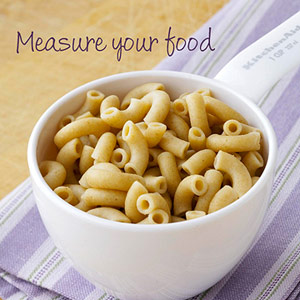October 12th, 2012 by admin in Health Tips
No Comments »
 As fathers, one of our most important responsibilities is to be there for our children. Work and travel schedules may make it difficult to be home every night for dinner or to catch every baseball game or music performance, but taking action on a few simple things can help us invest in our health today to ensure we are around to support and guide our children as they grow.
As fathers, one of our most important responsibilities is to be there for our children. Work and travel schedules may make it difficult to be home every night for dinner or to catch every baseball game or music performance, but taking action on a few simple things can help us invest in our health today to ensure we are around to support and guide our children as they grow.
As the survivor of a health scare a few years ago, I have made a personal commitment to a simple, five-point plan for health – and I encourage others to do the same. Here’s the plan I follow that can also help you invest in your future:
1. Know your numbers – Cholesterol, blood pressure, blood sugar. The key to good health is understanding first where you stand, and what you need to improve. For me, I love to cook so it’s about reducing the amount of salt and sugar I use to keep my numbers in check.
2. Know your history – Just as important as the lifestyle you lead is what you’ve inherited from your family. Knowing what you face genetically can go a long way in ensuring your current and future health. Share your family history with your physician who can help develop a customized health care plan that allows you to monitor and track against illnesses for which you might be disproportionately at risk due to what you’ve inherited.
3. Make balanced choices in your diet – Healthy eating isn’t about denying yourself every food you enjoy. As my doctor likes to say, you don’t have to give up everything. You never will be successful. But you do have to discipline yourself, and that’s something I have been working on as I try to manage my own weight. It’s not about going on a diet, which is based on denial, but about making responsible decisions that let you enjoy the foods and drinks you love, but in moderation. It’s tempting to eat steak and burgers – but research continues to caution against eating too much red meat. Instead of reaching for the chips, eat celery or carrot sticks instead. And instead of grabbing that cookie, reach for a peach or an apple to satisfy your sweet tooth.
4. Get moving! Get active – Most of us sit behind desks – or in traffic – for a good part of the day, so I can’t emphasize this point often enough. Physicians usually recommend at least 30 minutes of exercise, five days a week. You don’t have to be an athlete to get active – just walk, walk, walk! As president of a large, national health care organization, I log many miles traveling to our various sites. During my time on the road, I often take a personal walking tour of the many cities I visit. Walking doesn’t take fancy equipment and you don’t need to dress up or drive somewhere to do it. All you need is a sturdy pair of walking shoes, and many hotels provide maps for walking. You can even log miles and track your progress with walking partners at www.everybodywalk.com.
5. Have a good relationship with your physician. I respect – and also really like my doctor. She is more than a physician; she is a great coach. You should have the type of relationship with your physician where you feel he or she is on your team. If you don’t feel comfortable with your physician or don’t think of her or him as a partner in your life plan for health, then it’s time to find a doctor who can support your path to total health.
According to the U.S. Surgeon General, 80 percent of premature deaths in the U.S. are caused by four preventable behaviors: lack of physical activity, poor diet, alcohol use and smoking. The five steps I’m sharing with you are simple behavioral changes that won’t take up a lot of time, and will pay off in dividends in 10, 20, even 30 years down the road. Making time to invest in your health is a commitment well worth making and every effort you contribute starting today, will pay significant dividends for years to come.
Bernard J. Tyson is president and chief operating officer of Kaiser Foundation Hospitals and Health Plan, Inc.
June 22nd, 2012 by Dr. Val Jones in Health Tips, Opinion
10 Comments »
 I was raised by a health food zealot, and have been “eating clean” for most of my life. I have been an editor of a peer-reviewed nutrition and obesity journal, a food critic, and a dairy farmer. I am passionate about food – but I am also passionate about science. And I have to tell you, that for measurable health benefits, how much you eat is more important than what you eat.
I was raised by a health food zealot, and have been “eating clean” for most of my life. I have been an editor of a peer-reviewed nutrition and obesity journal, a food critic, and a dairy farmer. I am passionate about food – but I am also passionate about science. And I have to tell you, that for measurable health benefits, how much you eat is more important than what you eat.
I know this is controversial, and I’m certainly not saying that we should throw out all our leafy green veggies and grilled chicken and chow down on a diet of Twinkies and beer. But what I am saying is that the relative importance of food volume versus food quality has been misrepresented. We are focusing too much on specific nutrients and not enough on total caloric intake. I’d guess that what we eat is about 10% of the obesity problem, and how much we eat is 90% of the problem, but we spend 90% of our time talking about changing and improving what we eat rather than portion control strategies.
Consider these research-based findings :
1. The CDC has determined that 90% Americans get all the nutrients they need from the food they eat. Even “crappy” US diets actually do provide the minimum nutrients needed to avoid disease and malnutrition. I know this is surprising, but vitamins and supplements are simply not needed by most people.
2. Measurable health benefits occur from weight loss as small as 5-10% of total body weight. You don’t need to be a bikini model to achieve the health benefits of weight loss. You can decrease your blood pressure, sugar, and cholesterol with modest weight losses. In my opinion, leanness under about 25% body fat (for women) is mostly an aesthetic choice, not one of medical necessity.
3. Exercise benefits are largest at minimal levels. Going from sedentary to slightly active provides a larger health benefit than all additional increments of exercise. Thirty minutes of exercise, five times a week, is the minimum bar set by the Department of Health and Human Services. Anything beyond that is still valuable, but doesn’t decrease health risks by as much.
4. It matters more to lose weight, than it matters how you do it. Head-to-head studies of one diet versus another have repeatedly shown minimal differences in health benefits between the diet groups. The benefits occur from the weight loss, not from the manner in which it was lost.
This is all good news. Americans can achieve healthier outcomes with less effort than generally believed. Regular exercise, and a calorie-controlled diet (rather than rigidly controlling the macro and micro nutrients) are all that is required to substantially reduce the risk of many costly and unpleasant diseases. If you want to further optimize your health by eating a diet rich in fruits and veggies, whole grains, low-fat dairy, healthy fats, and lean protein please do so! But better to be a normal weight than obese due to eating too much of that healthy diet.
The bottom line is that you don’t have to give up eating the things you like, you just have to eat less of them. Even Olympian Carmelita Jeter eats Hostess cup cakes occasionally. And she’s the fastest woman in the world!
P.S. This blog post was inspired by a Twitter conversation with @Judith_Graham who said that the complicated issue of what to eat was too difficult to address in 140 character exchanges. Thank you, Judith!
P.P.S. Also, I’ve been thinking a lot about well-meaning but misguided (IMO) health policy issues raised by mayor Bloomberg’s ban on Big Gulps and the AMA’s endorsement of soda taxes. Bloomberg was pointing in the right direction (the size of the soda, not the soda itself was the problem), but I don’t believe you can regulate good behavior. Education and personal responsibility are the way to go.
June 20th, 2012 by Dr. Val Jones in Health Policy, Health Tips, News, Opinion
No Comments »
The American Medical Association (AMA) voted today to endorse taxation of sugary beverages as a means to raise money for anti-obesity programs. Interestingly, a recent physician survey at Medpage Today suggests that only 50% of physicians think that a soda tax is an effective public health strategy.
I am one of the 50% who feels that this policy will not be effective. In short, this is why:
1. You can become obese by eating and drinking almost anything in excess. Targeting sugary beverages is reductio ad absurdum. Did America become fat simply because of an excess supply of sugary fluids on grocery shelves? What about the super-sizing of our food portions, the change in workforce physical requirements, the advent of cars, escalators, healthy food “deserts” in poor neighborhoods, video games, and cutting gym class from schools?
Holding Coca Cola, et al. responsible for our own over-consumption of calories is both unfair and tantamount to spitting into the wind – something bad is going to come back at us. Consumers can easily get around the soda tax by buying sweet alternatives – which may have even more calories than soda. (Caramel latte anyone?) And then what? Are we really going to play public policy, food and beverage whack-a-mole?

Carmelita Jeter's Shopping Cart
2. You can be thin and fit while eating and drinking almost anything. Obviously nutrition science has shown that a diet rich in fresh fruits and veggies, lean meats, low-fat dairy, whole grains, and healthy fats is the best for our health. However, please consider that the world’s fastest woman, Olympian Carmelita Jeter, eats Hostess cup cakes, Teddy Grahams, Welch’s grape juice, whole milk, and Gatorade. How do I know? Because she posted a photo of her shopping cart on Twitter (see image to the left). I obviously have no idea how much of this she eats – or when she eats it – but if the world’s fastest woman is powered (to some degree) by “Twinkies” then I think we should all think twice about demonizing certain foods/beverages in our anti-obesity fervor.
3. You can’t regulate good behavior. Human behaviors that may lead to obesity are simply too complex to regulate. Who would want to live in a world where government becomes the de facto “Nutrisystem” for its citizens, mailing out pre-packaged, ingredient-controlled meals to 312 million people per day, three times a day, seven days a week? While that may save the post office from its imminent demise, we can neither afford to do that, nor do we need to.
People who believe that policy should drive behavior point to smoking bans that have cut down on smoking rates. While I agree that small improvements have been made in reducing smoking rates, roughly one in four people still smoke (depending on your source, this number could be as low as one-in-five), and one in every five deaths is still attributed to cigarette smoking. Hardly a resounding victory, alas.
But beyond the fact that policy changes (and the billions we’ve spent enacting and enforcing them) have resulted in a disappointing decrease in smoking rates, is the issue that cigarettes and food ingredients (such as sugar) are not analogous substances. While there is no safe minimum amount of cigarette smoke, our bodies need salt, glucose, and fat to survive. They cannot be cut out of our diet completely – nor should they. And the only way to force people to optimize their intake is to enact Draconian measures.
So instead of starting a food-fight, it’s important to accept the complexities associated with this particular health scourge and promote a broader, more-nuanced approach to wellness incentives. We have to attack this problem from the ground up, because a top-down approach requires our government to become an invasive, food and exercise nanny.
The good news is that one-third of Americans are not overweight or obese, despite our current “toxic” food/inactive lifestyle environment. Perhaps these thinner folks can be ambassadors for the rest of us, and reveal their secrets of healthy living despite our current limitations. Even with our best efforts, we need to understand that (like smokers) we will always have a segment of the population that is overweight or obese.
And as for the Olympians among us – they help to illustrate that obsessing over every morsel of food or cup of soda that we consume is not the way forward. Sorry AMA, I’m with Carmelita on this one.

Powered By Twinkies?
January 6th, 2012 by Steve Novella, M.D. in Opinion, True Stories
5 Comments »

Dr. Ian Gawler, a veterinarian, suffered from osteogenic sarcoma (a form of bone cancer) of the right leg when he was 24 in 1975. Treatment of the cancer required amputation of the right leg. After completing treatment he was found to have lumps in his groin. His oncologist at the time was confident this was local spread from the original cancer, which is highly aggressive. Gawler later developed lung and other lesions as well, and was given 6 months to live due to his metastatic disease.
Gawler decided to embark on an alternative treatment regimen, involving coffee enemas, a vegetarian diet, and meditation. Eventually he was completely cured of his terminal metastatic cancer. He has since become Australia’s most famous cancer survivor, promoting his alternative approach to cancer treatment, has published five books, and now runs the Gawler Foundation.
At least, that is the story he believes. There is one major problem with this medical tale, however – while the original cancer was confirmed by biopsy, the subsequent lesions were not. His oncologist at the time, Dr. John Doyle, assumed the new lesions were metastatic disease and never performed a biopsy. It was highly probable Read more »
*This blog post was originally published at Science-Based Medicine*
January 6th, 2012 by HarvardHealth in Health Tips
1 Comment »

If healthier eating is on your list of resolutions for 2012, look no further. The January 2012 issue of the Harvard Women’s Health Watch offers 12 ways to break old dietary habits and build new ones.
For many years, nutrition research focused on the benefits and risks of single nutrients, such as cholesterol, saturated fat, and antioxidants. Today, many researchers are exploring the health effects of foods and eating patterns, acknowledging that there are many important interactions within and among nutrients in the foods we eat.
The result is a better understanding of what makes up a healthy eating plan. Here are five food- or meal-based ways to improve your diet that we list in the article (you can see all 12 on the Harvard Health website):
Pile on the vegetables and fruits. Their high fiber, mineral, and vitamin content make fruits and vegetables a critical component of any healthy diet. They’re also the source of beneficial plant chemicals not found in other foods or supplements.
Go for the good fats. Read more »
*This blog post was originally published at Harvard Health Blog*
 As fathers, one of our most important responsibilities is to be there for our children. Work and travel schedules may make it difficult to be home every night for dinner or to catch every baseball game or music performance, but taking action on a few simple things can help us invest in our health today to ensure we are around to support and guide our children as they grow.
As fathers, one of our most important responsibilities is to be there for our children. Work and travel schedules may make it difficult to be home every night for dinner or to catch every baseball game or music performance, but taking action on a few simple things can help us invest in our health today to ensure we are around to support and guide our children as they grow.

 I was raised by a health food zealot, and have been “eating clean” for most of my life. I have been an editor of a peer-reviewed nutrition and obesity journal, a food critic, and a dairy farmer. I am passionate about food – but I am also passionate about science. And I have to tell you, that for measurable health benefits, how much you eat is more important than what you eat.
I was raised by a health food zealot, and have been “eating clean” for most of my life. I have been an editor of a peer-reviewed nutrition and obesity journal, a food critic, and a dairy farmer. I am passionate about food – but I am also passionate about science. And I have to tell you, that for measurable health benefits, how much you eat is more important than what you eat.











